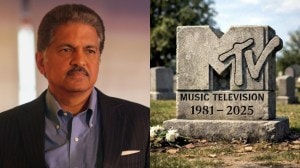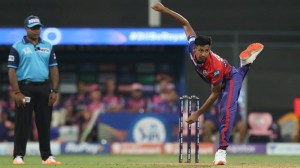Dr Ambedkar and the Constitution
We celebrated the 55th Republic Day and held the traditional Republic Day parade with the usual pomp. My thoughts turned to our Constitution...

We celebrated the 55th Republic Day and held the traditional Republic Day parade with the usual pomp. My thoughts turned to our Constitution and our founding fathers, particularly Dr B R Ambedkar, the principal architect of our Constitution. Dr Ambedkar8217;s signal contribution was the enactment of the article in the Constitution Article 32 which guarantees a citizen the fundamental right to move the Supreme Court directly for enforcement of his or her fundamental rights instead of first approaching the High Court before a single judge and thereafter in appeal before a division bench. The rationale was to secure speedy and inexpensive justice. Dr Ambedkar regarded this provision as 8216;8216;the very soul of the Constitution and the very heart of it8217;8217;. The tendency of some judges of the Supreme Court to relegate citizens to the High Court even in cases where there is a clear violation of their fundamental rights is certainly not in keeping with the heart and soul of the Constitution.
Hero worship is endemic in our country and the personality cult flourishes. In the process, the tendency is to entrust heroes and heroines with vast powers and uncritically accept their authority without insisting on accountability. Dr Ambedkar was aware of these lurking dangers. In the Constituent Assembly, he emphasised John Stuart Mill8217;s caution, namely, not 8216;8216;to lay liberties at the feet of even a great man, or to trust him with powers which enable him to subvert their institutions8217;8217;. Babasaheb was aware that hero worship in our country plays a part in politics unequalled in magnitude to the part it plays in any other country. He warned: 8216;8216;Bhakti in religion may be a road to the salvation of the soul. But in politics, Bhakti or hero-worship is a sure road to degradation and to eventual dictatorship.8217;8217; We did not heed this prophetic warning and had to suffer the spurious June 1975 Emergency. The slogan 8216;8216;India is Indira and Indira is India8217;8217; was repeatedly chanted in the sycophantic hero worship of the charismatic leader. Recently, we witnessed nauseating sycophancy when Congress leaders and politicians vied with one another in their heartrending attempts to persuade Sonia Gandhi to revoke her sensible decision to decline the Prime Ministerial office.
Dr Ambedkar attached great importance to constitutional morality in the working of the Constitution. He endorsed the view of the Greek historian Grote, that constitutional morality required 8216;8216;a paramount reverence for the forms of the Constitution, enforcing obedience to authority acting under and within these forms8217;8217;. He stressed that diffusion of constitutional morality should be 8216;8216;not merely among the majority of any community but throughout the whole 8212; since even any powerful and obstinate minority may render the working of a free institution impracticable without being strong enough to conquer ascendancy8217;8217;. Dr Ambedkar then posed the question: 8216;8216;Can we presume such a diffusion of constitutional morality?8217;8217; His frank answer was, 8216;8216;Constitutional morality is not a natural sentiment. It has to be cultivated. We must realise that our people have yet to learn it.8217;8217;
Surveying the present scene it is apparent that we have not yet learnt it. Indeed constitutional morality seems to be alien to our legislators and people at the centre of power
Padmas
The Padma awards are bound to be controversial. High Padma awards to some persons are considered farcical whereas other awardees are regarded as fully deserving. Gladys Staines, the Australian widow of Rev. Graham Staines who was murdered, clearly falls in the deserving category. Her life was one of unselfish service to our people and she behaved with great dignity after the brutal murder of her husband and her children. Those responsible for this decision deserve our praise. Another praiseworthy person is Prof. Romila Thapar, who refused the award of Padma Bhushan because she had taken a decision not to accept any state awards and had informed the HRD ministry of her decision three months back. One may not agree with her reasons but cannot fail to admire her. Trust there will be no Public Interest Litigation about Padma awards.
Royalty and Curiosity
The English revere their institutions. Monarchy is one of them. Despite trenchant criticism and calls for its abolition, the monarchy and the royalty continue to have an irresistible attraction and will live on. Paradoxically, the English also have an irresistible curiosity about the private lives of the royalty. Princess Diana is not yet spared by the media and by authors who are desirous of making a quick buck by indulging in colourful revealations about her private life which portray her as a woman of considerable sexual enthusiasm. Queen Victoria, the model of propriety, is also not spared. Some of her letters which have recently been published are said to suggest intimate relationship with a member of her staff!
- 01
- 02
- 03
- 04
- 05































